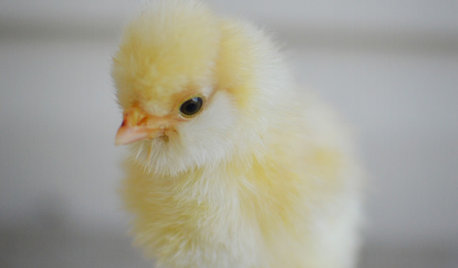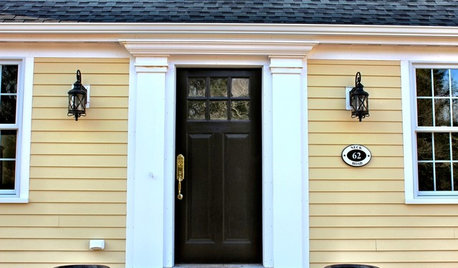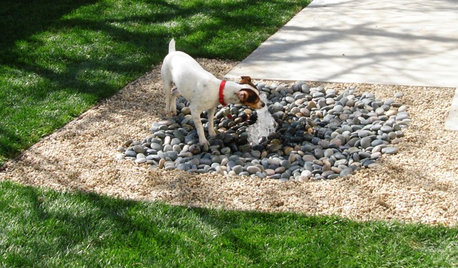outside vermicomposting - newbie advice needed
vjeko
12 years ago
Featured Answer
Sort by:Oldest
Comments (6)
equinoxequinox
12 years agolast modified: 9 years agorobertz6
12 years agolast modified: 9 years agoRelated Discussions
Northern VA newbie in need of advice...
Comments (2)eirebyron You are like an expectant parent pacing the hall outside the delivery room...relax and let nature take its' course. If you google blossom drop you will find much written and as many pictures on the subject. You are like the parent who after the baby is born starts to plan which college they will attend...relax (did I already say that) Sounds like you have got everything under control...but remember you will not be able to control Mother Nature Enjoy and Happy Gardening!...See Morenewbie need advice please
Comments (9)andyandy: I have about 20 plants going now in containers. I only have one super hot this year, a Trinidad Scorpion Butch T. It is only about 4" high and just now showing some very tiny buds. All my other plants are over a foot tall and most flowering, except for a couple ornamentals. I too have dealt with the same type of weather as you. We had 40's a couple weeks ago and several nights in the lower 50's. I think it has affected all my peppers but especially the Butch T. Most of mine are now flowering again and with warmer weather on the forecast, I think things will start to pick up. Bruce...See MoreNewbie: Vermicomposting in Virginia ???
Comments (8)Jim, I lived an Alexandria for five years and remember spending many a weekend in the Pentagon City mall watching movies just for the air conditioning. With that said, I think you can farm in the garage as long as you take a few precautions. I'd say your best bet would be a large insulated wooden bin. There are some plans available for a continuous flow digester at vermico.com that work very well and include designs for a support rack if you want to add soil heater cables for the winter. I have built a couple in my cellar (my own Man's Land as you put it) and so far they are working out well. If you want a simpler bin then you can make a decent one with a single sheet of plywood. Plans are here: www.seattletilth.org/resources/articles/WormBinPlans.pdf Again, I would insulate the inside or outside with some greyboard and make sure you've got plenty of good air circulation in the summer. As long as the temperature of the vermicompost doesn't drop below 40 or get above 85 for extended periods of time your worms should do fine. Kurt...See MoreFinishing project for newbie - advice needed!
Comments (2)Most strippers you can find will be methylene chloride. You should definitely use this outside. A semi-paste will give you some time, just don't over brush it on. Less common is NMP. MC will work better but is more "toxic" The biggest mistake is not to give the stripper enough time to work. Let it sit and do its job. I usually put a sheet of plastic over the stripper to keep it from evaporating away too fast. Unless someone finished this in their hobby workshop, it's likely not polyurethene. It's just not a production finish. More likely for a factory finish is lacquer. I like to use acetone as a rinse as it will also strip off the little residue of finish that might remain. If you want to get it out of the pores, use a Scotch-Brite scrub pad (maroon or light grade) with the acetone. Do not use steel wool for this as the iron in it will react with the tannins in oak and leave black stains. Tinted varnishes such as Polyshades are terrible products. Very difficult to get on evenly and poor adhesion to most under coats. CIAC. If you want to reduce the dark-light contrast on the grain, you want to use a dye-based stain, not a pigment based one. Problem is, the yellow cans you find at a home center will not tell you which is it. A real woodworking stores will have liquid or powdered dyes. Otherwise, you have to open the can to check for sludge on the bottom (the settled out pigment) I'd recommend getting Bob Flexner's "Understanding Wood Finishing" at your library or bookstore and reading relevant sections of stains and varnishes. It's a great book....See Moremorgan_3
12 years agolast modified: 9 years agovjeko
12 years agolast modified: 9 years agomorgan_3
12 years agolast modified: 9 years ago
Related Stories

PETSWhat You Need to Know Before Buying Chicks
Ordering chicks for your backyard coop? Easy. But caring for them requires planning and foresight. Here's what to do
Full Story
SMALL HOMESHouzz Tour: An Illinois Loft Sparks Renovation Fever
Home improvement newbies (and newlyweds) find joy and a new income source while redoing their space themselves
Full Story
DECORATING GUIDESRoom of the Day: A Spacious Porch Brings Family Life Outside
This Georgia back porch, decorated in neutrals and a mix of textures, serves as living, dining and family room almost year-round
Full Story
LIFE7 Things to Do Before You Move Into a New House
Get life in a new house off to a great start with fresh paint and switch plates, new locks, a deep cleaning — and something on those windows
Full Story
FURNITURESmart Shopper: How to Judge Antique Furniture Quality
Pick the treasures from the trash without expert experience by learning how to evaluate antiques and what questions to ask
Full Story
GARDENING GUIDESGarden Myths to Debunk as You Dig This Fall and Rest Over Winter
Termites hate wood mulch, don’t amend soil for trees, avoid gravel in planters — and more nuggets of garden wisdom
Full Story
LIFEThe Top 5 Ways to Save Water at Home
Get on the fast track to preserving a valuable resource and saving money too with these smart, effective strategies
Full Story
MOST POPULAR8 Backyard Ideas to Delight Your Dog
Cue the joyous soundtrack. These pet-friendly landscape and garden ideas will keep your pooch safe, happy and well exercised outdoors
Full Story
FURNITUREDecorating 101: How to Shop for Furniture
Learn what furniture to get rid of, what to look for when buying, and how to avoid mistakes
Full StorySponsored
Industry Leading Interior Designers & Decorators in Franklin County




Worms4Tracy